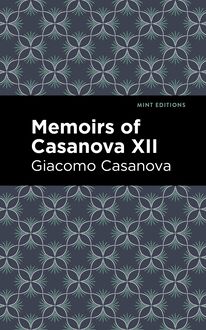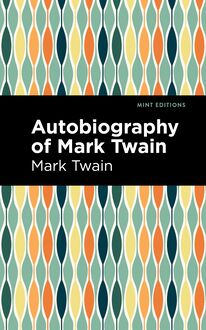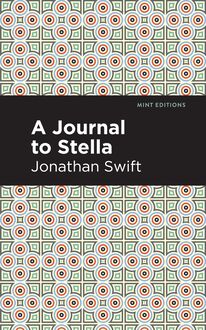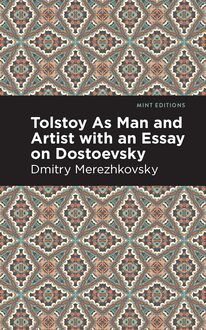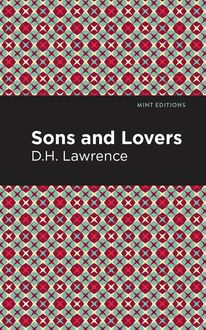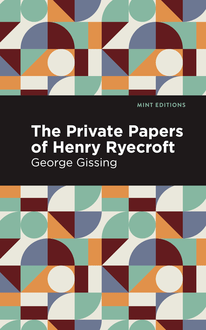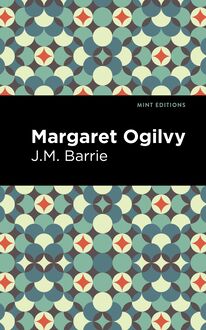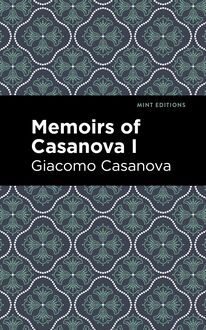-
 Univers
Univers
-
 Ebooks
Ebooks
-
 Livres audio
Livres audio
-
 Presse
Presse
-
 Podcasts
Podcasts
-
 BD
BD
-
 Documents
Documents
-
- Cours
- Révisions
- Ressources pédagogiques
- Sciences de l’éducation
- Manuels scolaires
- Langues
- Travaux de classe
- Annales de BEP
- Etudes supérieures
- Maternelle et primaire
- Fiches de lecture
- Orientation scolaire
- Méthodologie
- Corrigés de devoir
- Annales d’examens et concours
- Annales du bac
- Annales du brevet
- Rapports de stage
La lecture à portée de main
Vous pourrez modifier la taille du texte de cet ouvrage
Découvre YouScribe en t'inscrivant gratuitement
Je m'inscrisDécouvre YouScribe en t'inscrivant gratuitement
Je m'inscrisEn savoir plus
Vous pourrez modifier la taille du texte de cet ouvrage
En savoir plus

Description
After the death of her parents, Christie Devon declares her autonomy and desire to pioneer a new option for women—working. As a single woman, Christie wants to maintain her independence and work outside the home. She begins her journey discouraged to find that as a woman, her upbringing has failed her in that she was not taught a trade, as men often were, but rather the duties of a housewife. Christie first works as a maid, knowing there was no shame in the work itself. However, society was keen on making the work typical of women humiliating, and Christie soon finds that her pride cannot handle being a maid. Next, Christie works as an actress. She enjoys this work, though is discouraged by some of the “unvirtuous” aspects of the job. When she doesn’t obtain the success she was hoping for, Christie begins factory work. In the face of endless dilemmas, discouragement, and discrimination, Christie becomes even more determined not only to pave a path of success and independence for herself, but to inspire it for other women as well. Accompanied by an odd but lovable assortment of friends, including a radical priest, a prostitute, and a freed slave, Christie nurtures her ambition while keeping her values, becoming an advocate for women in the workplace.
On the frontlines of the start of women working outside the home, Work: A Story of Experience depicts life as a working woman during the Industrial era. As an advocate for women’s rights, Louisa May Alcott demonstrates in her novel that a woman can have both love and work. Alcott’s feminism translates as modern even today, as there are still lingering ideas that a woman who works is selfish. Work: A Story of Experience defies this, depicting Christie, a woman who exudes ambition while maintaining her loving virtues.
This edition of Louisa May Alcott’s Work: A Story of Experience is redesigned with an eye-catching new cover and easy-to-read print. Work: A Story of Experience depicts the semi-autobiographical struggles of author Louisa May Alcott as a working women in the 19th century, but also exemplifies feminism and romance that is still both admirable and applicable.
Sujets
Informations
| Publié par | Mint Editions |
| Date de parution | 01 décembre 2020 |
| Nombre de lectures | 0 |
| EAN13 | 9781513272795 |
| Langue | English |
Informations légales : prix de location à la page 0,0700€. Cette information est donnée uniquement à titre indicatif conformément à la législation en vigueur.
Extrait
Work
A Story of Experience
Louisa May Alcott
Work: A Story of Experience was first published in 1873.
This edition published by Mint Editions 2020.
ISBN 9781513267791 | E-ISBN 9781513272795
Published by Mint Editions®
minteditionbooks.com
Publishing Director: Jennifer Newens
Design & Production: Rachel Lopez Metzger
Typesetting: Westchester Publishing Services
C ONTENTS I. C HRISTIE II. S ERVANT III. A CTRESS IV. G OVERNESS V. C OMPANION VI. S EAMSTRESS VII. T HROUGH THE M IST VIII. A C URE FOR D ESPAIR IX. M RS . W ILKINS ’ S M INISTER X. B EGINNING A GAIN XI. I N THE S TRAWBERRY B ED XII. C HRISTIE ’ S G ALA XIII. W AKING U P XIV. W HICH ? XV. M IDSUMMER XVI. M USTERED I N XVII. T HE C OLONEL XVIII. S UNRISE XIX. L ITTLE H EART ’ S -E ASE XX. A T F ORTY
I
C HRISTIE
“ A unt Betsey, there’s going to be a new Declaration of Independence.”
“Bless and save us, what do you mean, child?” And the startled old lady precipitated a pie into the oven with destructive haste.
“I mean that, being of age, I’m going to take care of myself, and not be a burden any longer. Uncle wishes me out of the way; thinks I ought to go, and, sooner or later, will tell me so. I don’t intend to wait for that, but, like the people in fairy tales, travel away into the world and seek my fortune. I know I can find it.”
Christie emphasized her speech by energetic demonstrations in the bread-trough, kneading the dough as if it was her destiny, and she was shaping it to suit herself; while Aunt Betsey stood listening, with uplifted pie-fork, and as much astonishment as her placid face was capable of expressing. As the girl paused, with a decided thump, the old lady exclaimed:
“What crazy idee you got into your head now?”
“A very sane and sensible one that’s got to be worked out, so please listen to it, ma’am. I’ve had it a good while, I’ve thought it over thoroughly, and I’m sure it’s the right thing for me to do. I’m old enough to take care of myself; and if I’d been a boy, I should have been told to do it long ago. I hate to be dependent; and now there’s no need of it, I can’t bear it any longer. If you were poor, I wouldn’t leave you; for I never forget how kind you have been to me. But Uncle doesn’t love or understand me; I am a burden to him, and I must go where I can take care of myself. I can’t be happy till I do, for there’s nothing here for me. I’m sick of this dull town, where the one idea is eat, drink, and get rich; I don’t find any friends to help me as I want to be helped, or any work that I can do well; so let me go, Aunty, and find my place, wherever it is.”
“But I do need you, deary; and you mustn’t think Uncle don’t like you. He does, only he don’t show it; and when your odd ways fret him, he ain’t pleasant, I know. I don’t see why you can’t be contented; I’ve lived here all my days, and never found the place lonesome, or the folks unneighborly.” And Aunt Betsey looked perplexed by the new idea.
“You and I are very different, ma’am. There was more yeast put into my composition, I guess; and, after standing quiet in a warm corner so long, I begin to ferment, and ought to be kneaded up in time, so that I may turn out a wholesome loaf. You can’t do this; so let me go where it can be done, else I shall turn sour and good for nothing. Does that make the matter any clearer?” And Christie’s serious face relaxed into a smile as her aunt’s eye went from her to the nicely moulded loaf offered as an illustration.
“I see what you mean, Kitty; but I never thought on’t before. You be better riz than me; though, let me tell you, too much emptins makes bread poor stuff, like baker’s trash; and too much workin’ up makes it hard and dry. Now fly ’round, for the big oven is most het, and this cake takes a sight of time in the mixin’.”
“You haven’t said I might go, Aunty,” began the girl, after a long pause devoted by the old lady to the preparation of some compound which seemed to require great nicety of measurement in its ingredients; for when she replied, Aunt Betsey curiously interlarded her speech with audible directions to herself from the receipt-book before her.
“I ain’t no right to keep you, dear, ef you choose to take (a pinch of salt). I’m sorry you ain’t happy, and think you might be ef you’d only (beat six eggs, yolks and whites together). But ef you can’t, and feel that you need (two cups of sugar), only speak to Uncle, and ef he says (a squeeze of fresh lemon), go, my dear, and take my blessin’ with you (not forgettin’ to cover with a piece of paper).”
Christie’s laugh echoed through the kitchen; and the old lady smiled benignly, quite unconscious of the cause of the girl’s merriment.
“I shall ask Uncle to-night, and I know he won’t object. Then I shall write to see if Mrs. Flint has a room for me, where I can stay till I get something to do. There is plenty of work in the world, and I’m not afraid of it; so you’ll soon hear good news of me. Don’t look sad, for you know I never could forget you, even if I should become the greatest lady in the land.” And Christie left the prints of two floury but affectionate hands on the old lady’s shoulders, as she kissed the wrinkled face that had never worn a frown to her.
Full of hopeful fancies, Christie salted the pans and buttered the dough in pleasant forgetfulness of all mundane affairs, and the ludicrous dismay of Aunt Betsey, who followed her about rectifying her mistakes, and watching over her as if this sudden absence of mind had roused suspicions of her sanity.
“Uncle, I want to go away, and get my own living, if you please,” was Christie’s abrupt beginning, as they sat round the evening fire.
“Hey! what’s that?” said Uncle Enos, rousing from the doze he was enjoying, with a candle in perilous proximity to his newspaper and his nose.
Christie repeated her request, and was much relieved, when, after a meditative stare, the old man briefly answered:
“Wal, go ahead.”
“I was afraid you might think it rash or silly, sir.”
“I think it’s the best thing you could do; and I like your good sense in pupposin’ on’t.”
“Then I may really go?”
“Soon’s ever you like. Don’t pester me about it till you’re ready; then I’ll give you a little suthing to start off with.” And Uncle Enos returned to “The Farmer’s Friend,” as if cattle were more interesting than kindred.
Christie was accustomed to his curt speech and careless manner; had expected nothing more cordial; and, turning to her aunt, said, rather bitterly:
“Didn’t I tell you he’d be glad to have me go? No matter! When I’ve done something to be proud of, he will be as glad to see me back again.” Then her voice changed, her eyes kindled, and the firm lips softened with a smile. “Yes, I’ll try my experiment; then I’ll get rich; found a home for girls like myself; or, better still, be a Mrs. Fry, a Florence Nightingale, or”—
“How are you on’t for stockin’s, dear?”
Christie’s castles in the air vanished at the prosaic question; but, after a blank look, she answered pleasantly:
“Thank you for bringing me down to my feet again, when I was soaring away too far and too fast. I’m poorly off, ma’am; but if you are knitting these for me, I shall certainly start on a firm foundation.” And, leaning on Aunt Betsey’s knee, she patiently discussed the wardrobe question from hose to head-gear.
“Don’t you think you could be contented any way, Christie, ef I make the work lighter, and leave you more time for your books and things?” asked the old lady, loth to lose the one youthful element in her quiet life.
“No, ma’am, for I can’t find what I want here,” was the decided answer.
“What do you want, child?”
“Look in the fire, and I’ll try to show you.”
The old lady obediently turned her spectacles that way; and Christie said in a tone half serious, half playful:
“Do you see those two logs? Well that one smouldering dismally away in the corner is what my life is now; the other blazing and singing is what I want my life to be.”
“Bless me, what an idee! They are both a-burnin’ where they are put, and both will be ashes to-morrow; so what difference doos it make?”
Christie smiled at the literal old lady; but, following the fancy that pleased her, she added earnestly:
“I know the end is the same; but it does make a difference how they turn to ashes, and how I spend my life. That log, with its one dull spot of fire, gives neither light nor warmth, but lies sizzling despondently among the cinders. But the other glows from end to end with cheerful little flames that go singing up the chimney with a pleasant sound. Its light fills the room and shines out into the dark; its warmth draws us nearer, making the hearth the cosiest place in the house, and we shall all miss the friendly blaze when it dies. Yes,” she added, as if to herself, “I hope my life may be like that, so that, whether it be long or short, it will be useful and cheerful while it lasts, will be missed when it ends, and leave something behind besides ashes.”
Though she only half understood them, the girl’s words touched the kind old lady, and made her look anxiously at the eager young face gazing so wistfully into the fire.
“A good smart blowin’ up with the belluses would make the green stick burn most as well as the dry one after a spell. I guess contentedness is the best bellus for young folks, ef they would only think so.”
“I dare say you are right, Aunty; but I want to try for myself; and if I fail, I’ll come back and follow your advice. Young folks always have discontented fits, you know. Didn’t you when you were a girl?”
“Shouldn’t wonder ef I did; but Enos came along, and I forgot ’em.”
“My Enos has not come along yet, and never may; so I’m not going to sit and wait for any man to give me independence, if I can earn it for myself.” And a quick glance at the gruff, gray old man in the corner plainly betrayed that, in Christie’s opinion, Aunt Betsey made a bad bargain when she exchanged her girlish aspirations for a man whose soul was in
-
 Univers
Univers
-
 Ebooks
Ebooks
-
 Livres audio
Livres audio
-
 Presse
Presse
-
 Podcasts
Podcasts
-
 BD
BD
-
 Documents
Documents
-
Jeunesse
-
Littérature
-
Ressources professionnelles
-
Santé et bien-être
-
Savoirs
-
Education
-
Loisirs et hobbies
-
Art, musique et cinéma
-
Actualité et débat de société
-
Jeunesse
-
Littérature
-
Ressources professionnelles
-
Santé et bien-être
-
Savoirs
-
Education
-
Loisirs et hobbies
-
Art, musique et cinéma
-
Actualité et débat de société
-
Actualités
-
Lifestyle
-
Presse jeunesse
-
Presse professionnelle
-
Pratique
-
Presse sportive
-
Presse internationale
-
Culture & Médias
-
Action et Aventures
-
Science-fiction et Fantasy
-
Société
-
Jeunesse
-
Littérature
-
Ressources professionnelles
-
Santé et bien-être
-
Savoirs
-
Education
-
Loisirs et hobbies
-
Art, musique et cinéma
-
Actualité et débat de société
- Cours
- Révisions
- Ressources pédagogiques
- Sciences de l’éducation
- Manuels scolaires
- Langues
- Travaux de classe
- Annales de BEP
- Etudes supérieures
- Maternelle et primaire
- Fiches de lecture
- Orientation scolaire
- Méthodologie
- Corrigés de devoir
- Annales d’examens et concours
- Annales du bac
- Annales du brevet
- Rapports de stage

